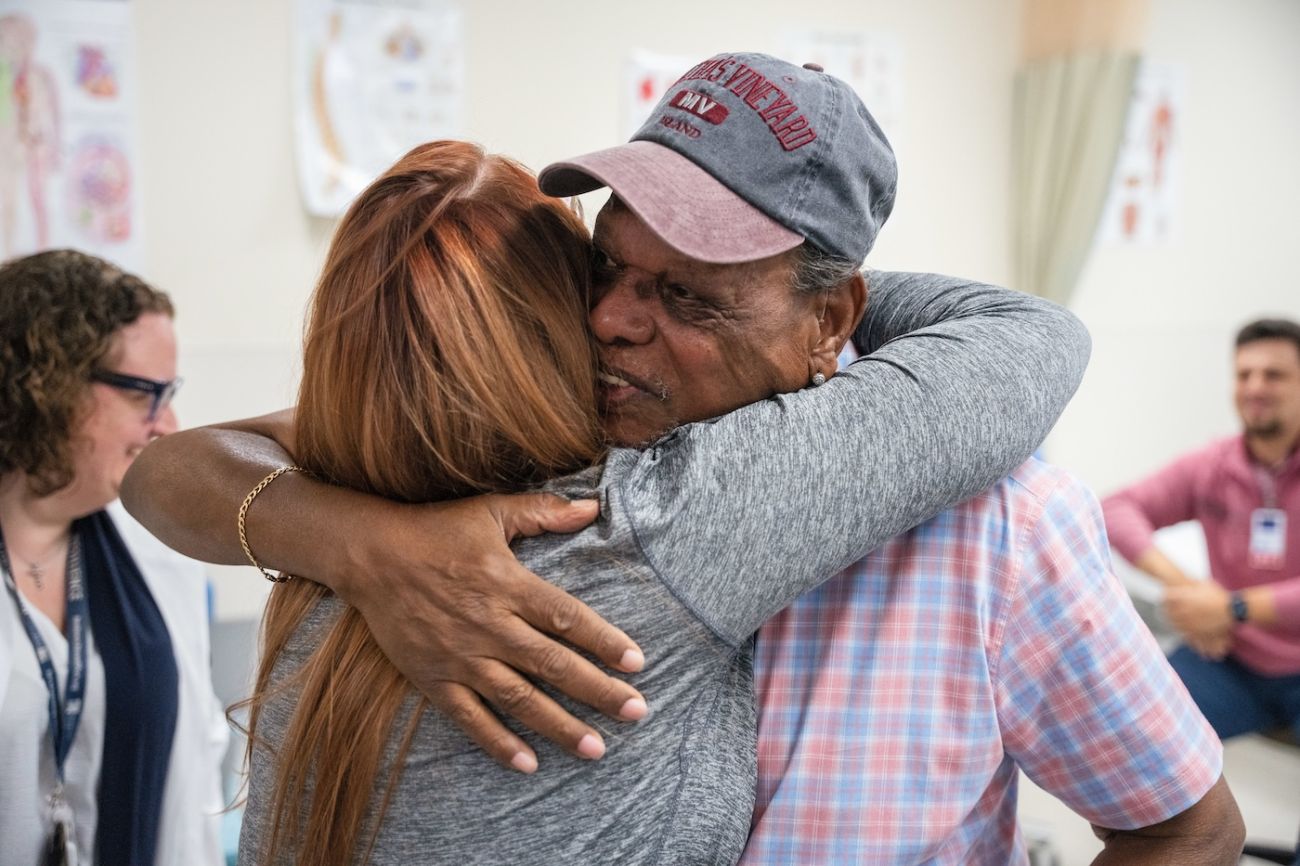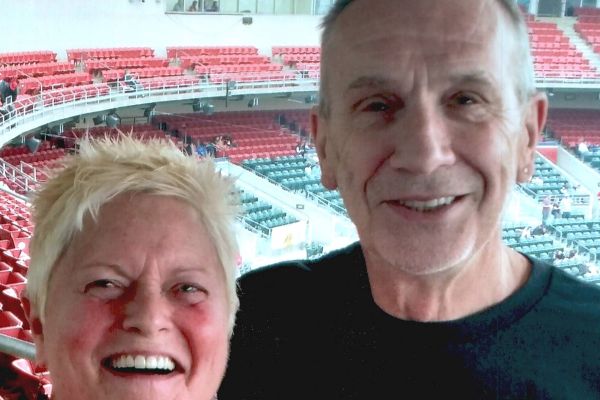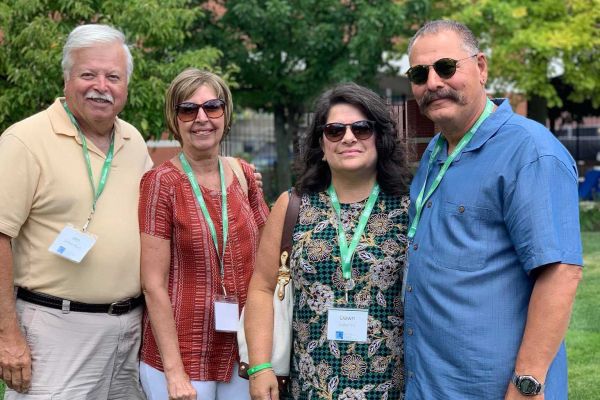Empathy from a place of true understanding
One definition of a “coach” is someone with more experience than you have who helps you achieve better outcomes for your own similar experience than you may be currently having.
The Cancer Coach Program at Roswell Park Comprehensive Cancer Center does just that. To enhance Roswell Park’s patient-first culture – at no patient cost – it connects survivors with patients in active therapy to offer empathetic, non-medical support from someone with firsthand understanding of the journey.
“Despite best intentions, family and friends are not always able to meet the emotional needs of loved ones going through cancer treatment. They are not able to process it, and can say the wrong things. And to that point, I have encountered an occasional patient who is alone, not by choice, at their appointments. Having additional support would be helpful,” Cancer Coach Program administrator Richard Satterwhite says.
“The program provides an opportunity for patients to have a real conversation with someone who has a real understanding of their experience, because they lived it.”
A broadened horizon for healing
Established at Roswell Park about 2017, there are currently 179 patients being coached. Coaches and "coachees" are matched by gender and cancer diagnoses, according to the availability of a coach with the same or similar diagnosis. As much as possible, they are also partnered by shared interests, cultural or religious background and other basic demographic information.
Requesting a coach
Connecting with a Roswell Park Cancer Coach can potentially offer you a new horizon of healing hope. Talking with someone who can provide comfort and valuable, practical information about their own experience with cancer can reduce the anxiety and isolation often associated with navigating through cancer treatment territory.
The first communication with a Cancer Coach is usually a get-to-know-each-other phone call or possibly video chat. This will help you begin to bond and cultivate a sound relationship and comfortable support strategy for going forward. While the Cancer Coach team creates the match, the length and scope of the relationship is determined by you and your coach. The Cancer Coach team will check in occasionally to make sure things are going well.
Becoming a coach
To become a coach, you must:
- Be a cancer survivor who is two years out from active cancer treatment
- Have received treatment at a Roswell Park location
- Be a Roswell Park volunteer who has completed the necessary training
- Attend a Cancer Coach Workshop
“Becoming a coach is a selfless opportunity for re-engaging with a past that may have been painful. But one of the most important things a cancer coach offers is the ability to listen,” Satterwhite says.
Roswell Park Cancer Coach training focuses on building relationships and helping coaches fully understand their important mission through instruction on building Foundational Communication Skills including:
- Empathy
- Active listening
- Self-Awareness
If you’re interested in becoming or requesting a Cancer Coach, the first step is to complete the online application. Satterwhite will review your application and someone from the team will call you to learn more about you personally, your diagnosis and the kind of support you need – or are able to provide.
“I have found that initial contact to actually be a little bit of therapy,” he says. “Sometimes people just want to be heard beyond an application vent.”
Find support through the Cancer Coach Program
You are not alone - talking with someone who has lived with cancer and can relate to your experience can reduce anxiety and isolation you may feel.
Editor’s Note: Cancer patient outcomes and experiences may vary, even for those with the same type of cancer. An individual patient’s story should not be used as a prediction of how another patient will respond to treatment. Roswell Park is transparent about the survival rates of our patients as compared to national standards, and provides this information, when available, within the cancer type sections of this website.



